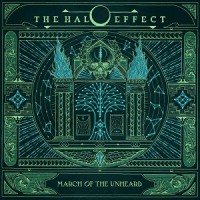Barón Rojo - Biography
Logo
Biography
Barón Rojo was formed in Madrid in 1980 by De Castro brothers Armando (vocals, guitar) and Carlos (guitar, vocals). Their previous band, Coz, originally was a Hard Rock band that turned their sound to Pop/Rock to record their first album. De Castro brothers weren't satisfied with that new Coz's sound and the band split in two. De Castro brothers recruited the Uruguaian drummer Hermes Calabria and the singer Sherpa to follow with the band. So there was a short time with two bands named Coz in the circuit, but CBS records had the royalties for the name so De Castro brothers finally changed their name to Barón Rojo.
With the new name and the same line-up they released their first full-length album "Larga Vida al Rock'n'Roll" in 1981. This album was relatively successful and let them to record their second and most acclaimed album in Ian Gillan's Kingsway Recorders in England. In their stance in the UK they even played a gigs with the new Iron Maiden vocalist, Bruce Dickinson under the name "Red Baron", although they recorded "Volumen Brutal" under their original name. "Volumen Brutal" sold 25,000 copies only in Spain and was distributed in Europe and Japan too, with an English lyrics version. On August 27th, 1982 they played in Reading Festival with bands like Iron Maiden, MSG, Y&T, Gary Moore or Twisted Sister.
Their next full-length album "Metalmorfosis" was recorded in Battery Studios in London. This album wasn't as succesful as their second, but let them to take part in Heavy Sound Festival '83 in Brujas, Belgium with bands like Uriah Heep and Golden Earring. In this sweet moment they decided to put out a live Album called "Barón al Rojo Vivo" that was recorded on February 10th and 11th, 1984.
In 1984 they played in Heavy Sound Festival at Poperinge, Belgium with bands like Motörhead and Mercyful Fate. In that gig Metallica opened for Barón Rojo. That year they also toured South America. In 1985 and 1986 they released "En un Lugar de la Marcha" and "Siempre Estás Allí", where they lend to a more mature sound and lyrics. The label EMI showed some interest for the band but Chapa Discos didn't let them free and for that reason they were perpetually restricted to the Spanish local scene and their albums weren't released out of Spain no more.
With the new name and the same line-up they released their first full-length album "Larga Vida al Rock'n'Roll" in 1981. This album was relatively successful and let them to record their second and most acclaimed album in Ian Gillan's Kingsway Recorders in England. In their stance in the UK they even played a gigs with the new Iron Maiden vocalist, Bruce Dickinson under the name "Red Baron", although they recorded "Volumen Brutal" under their original name. "Volumen Brutal" sold 25,000 copies only in Spain and was distributed in Europe and Japan too, with an English lyrics version. On August 27th, 1982 they played in Reading Festival with bands like Iron Maiden, MSG, Y&T, Gary Moore or Twisted Sister.
Their next full-length album "Metalmorfosis" was recorded in Battery Studios in London. This album wasn't as succesful as their second, but let them to take part in Heavy Sound Festival '83 in Brujas, Belgium with bands like Uriah Heep and Golden Earring. In this sweet moment they decided to put out a live Album called "Barón al Rojo Vivo" that was recorded on February 10th and 11th, 1984.
In 1984 they played in Heavy Sound Festival at Poperinge, Belgium with bands like Motörhead and Mercyful Fate. In that gig Metallica opened for Barón Rojo. That year they also toured South America. In 1985 and 1986 they released "En un Lugar de la Marcha" and "Siempre Estás Allí", where they lend to a more mature sound and lyrics. The label EMI showed some interest for the band but Chapa Discos didn't let them free and for that reason they were perpetually restricted to the Spanish local scene and their albums weren't released out of Spain no more.




